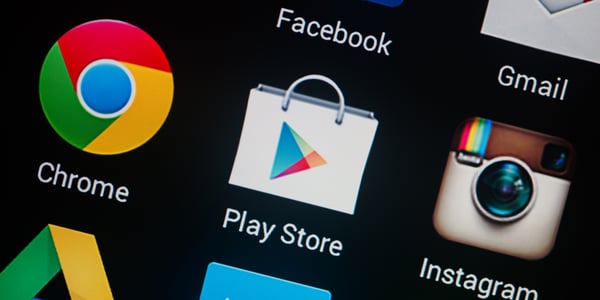
This week's review of ad fraud and quality in the digital advertising space.
The Connected TV (CTV) and over-the-top (OTT) programmatic advertising landscape went through a phrase of rapid growth in 2019, according to Pixalate's State of Connected TV/OTT: 2019 Ad Supply Trends Report.
According to Pixalate's data, between Q1 2019 and Q4 2019, global programmatic OTT/CTV ad impressions increase 4.3x — or 330%.

"Google has removed close to 600 Android apps and banned their developers from the Play store and its ad networks as part of a massive crackdown on ad fraud and 'disruptive' mobile ads," reported BuzzFeed News.
Learn more about delisted apps in Pixalate's 2019 Mobile Ad Supply Chain Safety Report.

"Recent data privacy regulations have forced app publishers and brands to provide clear descriptions on how and what location data they collect, but many have already embraced transparency," reported eMarketer.

"A new email-based extortion scheme apparently is making the rounds, targeting Web site owners serving banner ads through Google’s AdSense program," reported Krebs on Security. "In this scam, the fraudsters demand bitcoin in exchange for a promise not to flood the publisher’s ads with so much bot and junk traffic that Google’s automated anti-fraud systems suspend the user’s AdSense account for suspicious traffic."

The Drum interviewed Craig Silverman of BuzzFeed News, who has broken several ad fraud stories over the past couple of years, including Pixalate's recent discovery of an OTT/CTV ad fraud scheme dubbed "DiCaprio."
"Silverman believes the ad industry needs to work harder to identify the corrupt elements in its midst," wrote The Drum, before quoting Silverman as saying: “These are really trust-destroying things that are taking place in the ecosystem and it’s something people working in the industry really need to think about as a problem that they need to have a role in helping solve.”
*By entering your email address and clicking Subscribe, you are agreeing to our Terms of Use and Privacy Policy.
These Stories on Weekly Recaps
*By entering your email address and clicking Subscribe, you are agreeing to our Terms of Use and Privacy Policy.

Disclaimer: The content of this page reflects Pixalate’s opinions with respect to the factors that Pixalate believes can be useful to the digital media industry. Any proprietary data shared is grounded in Pixalate’s proprietary technology and analytics, which Pixalate is continuously evaluating and updating. Any references to outside sources should not be construed as endorsements. Pixalate’s opinions are just that - opinion, not facts or guarantees.
Per the MRC, “'Fraud' is not intended to represent fraud as defined in various laws, statutes and ordinances or as conventionally used in U.S. Court or other legal proceedings, but rather a custom definition strictly for advertising measurement purposes. Also per the MRC, “‘Invalid Traffic’ is defined generally as traffic that does not meet certain ad serving quality or completeness criteria, or otherwise does not represent legitimate ad traffic that should be included in measurement counts. Among the reasons why ad traffic may be deemed invalid is it is a result of non-human traffic (spiders, bots, etc.), or activity designed to produce fraudulent traffic.”

